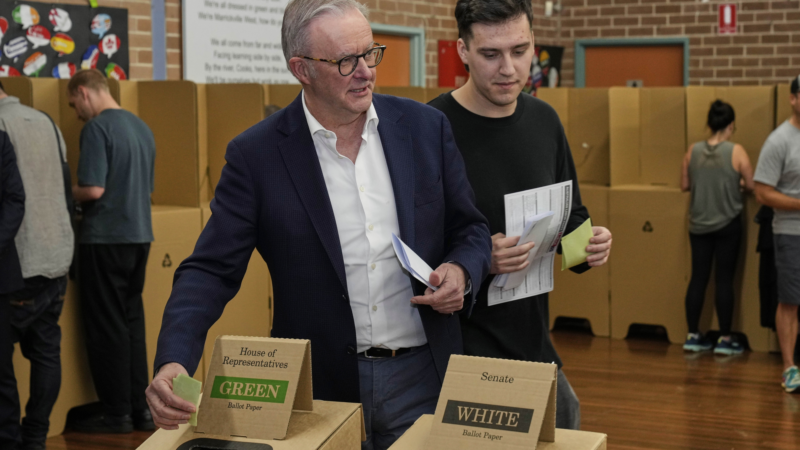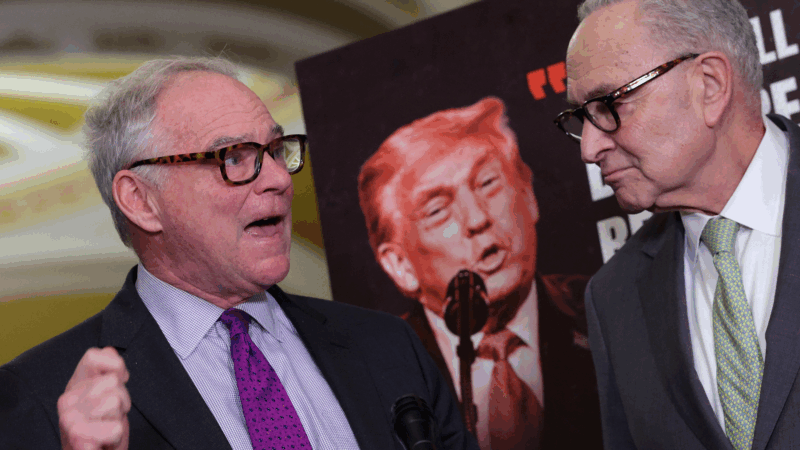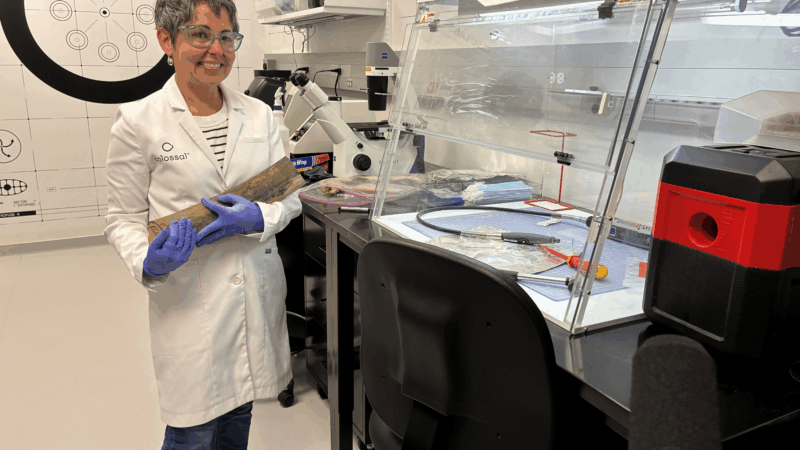Australia’s Prime Minister Anthony Albanese heads to a second 3-year term
MELBOURNE, Australia — Prime Minister Anthony Albanese has become the first Australian prime minister to win a second consecutive three-year term in 21 years.
Opposition leader Peter Dutton conceded defeat in Saturday’s election, saying, “We didn’t do well enough during this campaign, that much is obvious tonight, and I accept full responsibility for that.”
“Earlier on, I called the prime minister to congratulate him on his success tonight. It’s an historic occasion for the Labor Party and we recognise that,” he added.
The Australian Electoral Commission’s projections gave Albanese’s ruling center-left Labor Party 70 seats and the conservative opposition coalition 24 seats in the 150-seat House of Representatives, the lower chamber where parties need a majority to form governments. Unaligned minor parties and independent candidates appeared likely to win 13 seats.
Australian Broadcasting Corp. respected election analyst Antony Green predicted Labor would win 76 seats, the coalition 36 and unaligned lawmakers 13. Green said Labor would form a majority or minority government and that the coalition had no hope of forming even a minority government.
Energy policy and inflation have been major issues in the campaign, with both sides agreeing the country faces a cost of living crisis.
Opposition leader branded ‘DOGE-y Dutton’
Dutton’s conservative Liberal Party blames government waste for fueling inflation and increasing interest rates, and has pledged to ax more than one in five public service jobs to reduce government spending.
While both say the country should reach net-zero greenhouse gas emissions by 2050, Dutton argues that relying on more nuclear power instead of renewable energy sources such as solar and wind turbines would deliver less expensive electricity.
The ruling center-left Labor Party has branded the opposition leader “DOGE-y Dutton” and accused his party of mimicking U.S. President Donald Trump and his Department of Government Efficiency.
Labor argues Dutton’s administration would slash services to pay for its nuclear ambitions.
“We’ve seen the attempt to run American-style politics here of division and pitting Australians against each other and I think that’s not the Australian way,” Albanese said.
Albanese also noted that his government had improved relations with China, which removed a series of official and unofficial trade barriers that had cost Australian exporters 20 billion Australian dollars ($13 billion) a year since Labor came to power in 2022.
A cost of living crisis as the country faces generational change
The election is taking place against a backdrop of what both sides of politics describe as a cost of living crisis.
Foodbank Australia, the nation’s largest food relief charity, reported 3.4 million households in the country of 27 million people experienced food insecurity last year.
That meant Australians were skipping meals, eating less or worrying about running out of food before they could afford to buy more.
The central bank reduced its benchmark cash interest rate by a quarter percentage point in February to 4.1% in an indication that the worst of the financial hardship had passed. The rate is widely expected to be cut again at the bank’s next board meeting on May 20, this time to encourage investment amid the international economic uncertainty generated by Trump’s tariff policies.
Both campaigns have focused on Australia’s changing demographics. The election is the first in Australia in which Baby Boomers, born between born between the end of World War II and 1964, are outnumbered by younger voters.
Both campaigns promised policies to help first-home buyers buy into a property market that is too expensive for many.
The election could produce a minority government
Going into the election, Labor held a narrow majority of 78 seats in a 151-seat House of Representatives. There will be 150 seats in the next parliament due to redistributions.
A loss of more than two seats could force Labor to attempt to form a minority government with the support of unaligned lawmakers.
There was a minority government after the 2010 election, and the last one before that was during World War II.
The last time neither party won a majority, it took 17 days after the polls closed before key independent lawmakers announced they would support a Labor administration.
Iranian civilians are now fleeing the relentless bombing for neighboring Turkey
As the U.S. military broadens its strikes in Iran, traumatized Iranians are reaching the border with Turkey.
A split Senate votes against measure to constrain Trump’s authorities in Iran
Democrats in the Senate were facing an uphill climb Wednesday in their push to restrain President Trump's ability to wage war against Iran.
WATCH: How traffic dried up in the Strait of Hormuz since the Iran war began
The effective closure of the Strait of Hormuz is "about as wrong as things could go" for global oil markets. Iran achieved it not with a naval blockade, but with cheap drones.
As Mississippi waits to spend opioid settlement funds, children and families suffer
Mississippi will receive more than $400M to fight the opioid epidemic. So far, officials haven't directed it toward programs that support addiction recovery.
Alabama’s new state climatologist takes the reins
The controversial John Christy is retiring as Alabama’s state climatologist. Lee Ellenburg now assumes the role and is already making a few changes, including declaring that climate change is real and caused by humans.
Colossal Biosciences breeds controversy while trying to revive mammoths
A Texas biotech company is trying to bring mammoths and other extinct creatures back to life. The science is as intriguing as the ethical questions are thorny.






